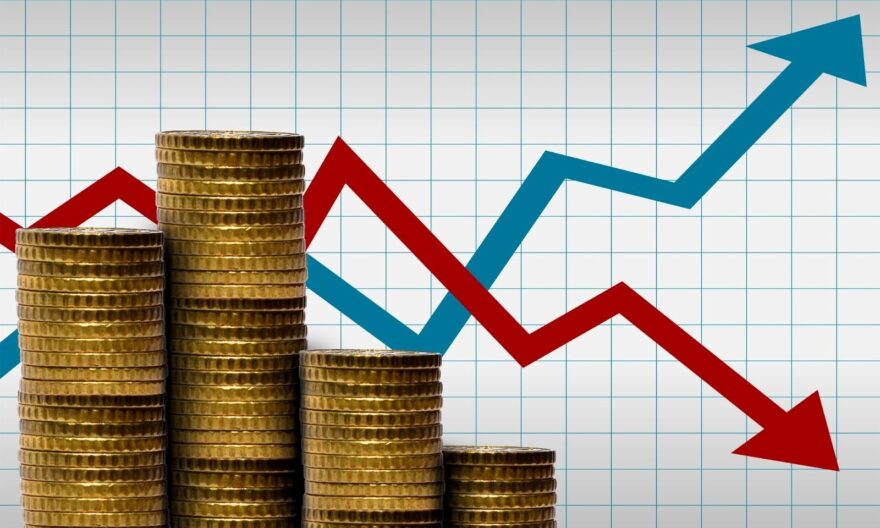
The future of currency trading in India is poised for significant changes, thanks to the growing economy and increasing financial awareness. So here, we will explore a comprehensive overview of the possible predictions and trends shaping the currency trading scenario, offering practical insights that traders can implement easily.
Increased Use of Technology and AI
Advanced algorithms and AI-powered trading systems are becoming more prevalent, allowing traders to analyse vast amounts of data quickly and make informed decisions.
1. Algorithmic Trading
Algorithmic or algo trading uses pre-programmed instructions to execute trades at high speeds and volumes. This technology can identify patterns and trends that are not easily visible to human traders. In the coming years, we can expect a rise in the adoption of algo trading platforms, enabling traders to automate their strategies and improve efficiency.
To stay ahead, traders should familiarize themselves with basic programming and algorithmic trading concepts. Many brokers offer tools and platforms for algorithmic trading, making it accessible even for individual traders.
2. AI and Machine Learning
AI and machine learning can process large datasets to predict market movements and identify trading opportunities. These technologies can provide insights into market sentiment and potential price movements, giving traders a competitive edge.
Consider using AI-powered trading platforms and tools that provide real-time analysis and predictive analytics. These tools can help you make more informed trading decisions and optimize your strategies.
Regulatory Changes and Impact
Regulatory changes are another crucial factor that will shape the future of currency trading in India. The Securities and Exchange Board of India (SEBI) reviews and updates rules and regulations to ensure market integrity and protect investors.
1. Stricter Compliance Requirements
With increasing concerns about market manipulation and money laundering, regulatory bodies will likely impose stricter compliance requirements on brokers offering currency and demat account services and traders. This includes enhanced KYC (Know Your Customer) processes and stricter transaction monitoring.
2. Introduction of New Trading Instruments
Regulators may also introduce new trading instruments and products to diversify the market and attract more participants. This could include new currency pairs, derivatives, and other financial instruments.
Watch for announcements from SEBI regarding new trading instruments. Diversifying your portfolio with new instruments can provide additional profit opportunities.
Growth of Mobile Trading
The rise of mobile trading apps has made currency trading more accessible to a broader audience. Mobile trading allows traders to monitor the markets, execute trades, and manage portfolios.
1. User-Friendly Apps
As technology advances, trading apps are becoming more user-friendly and feature-rich. These apps offer real-time market data, advanced charting tools, and seamless trade execution along with demat account services.
Use reputable mobile trading apps that offer comprehensive features and secure transactions. Look for apps that provide real-time notifications and alerts to stay updated with market movements.
2. Increased Participation from Retail Traders
The convenience of mobile trading is likely to attract more retail traders to the forex market. With easy access to trading platforms, more individuals can participate in currency trading, increasing market liquidity and diversity.
As a retail trader, take advantage of educational resources and tutorials brokers offer to enhance your trading skills. Engaging with online trading communities can also provide valuable insights and support.
Enhanced Security Measures
1. Advanced Encryption and Security Protocols
Brokers are implementing advanced encryption and security protocols to safeguard trading platforms. This includes two-factor authentication (2FA), biometric verification, and secure socket layer (SSL) encryption.
Ensure that your broker uses robust security measures to protect your account. Enable all available security features, such as 2FA, and regularly update your passwords.
2. Cybersecurity Awareness
As cyber threats evolve, traders must be aware of potential risks and proactively protect their accounts. This includes being cautious of phishing attempts and avoiding using public Wi-Fi for trading.
Integration of Blockchain Technology
Blockchain technology is gaining traction in the financial markets due to its potential to enhance transparency and security. In the context of currency trading, blockchain can offer several benefits.
1. Transparent Transactions
Blockchain enables transparent and immutable records of transactions, reducing the risk of fraud and manipulation. This transparency can build trust among traders and improve market integrity.
Consider trading platforms that leverage blockchain technology for transaction verification and settlement. This can provide an added layer of security and transparency to your trades.
2. Faster Settlements
Blockchain can facilitate faster settlements of trades by eliminating intermediaries and streamlining the transaction process. This can enhance the efficiency of currency trading and reduce settlement times.
Explore brokers and trading platforms that use blockchain technology to expedite trade settlements. Faster settlements can help you manage your positions more effectively and reduce counterparty risk.
Conclusion
Technological advancements, regulatory changes, and increased retail trade participation are set to shape the future of currency trading in India. By staying informed about these trends and adopting the recommended practices, traders can navigate the evolving landscape and capitalise on new opportunities.






